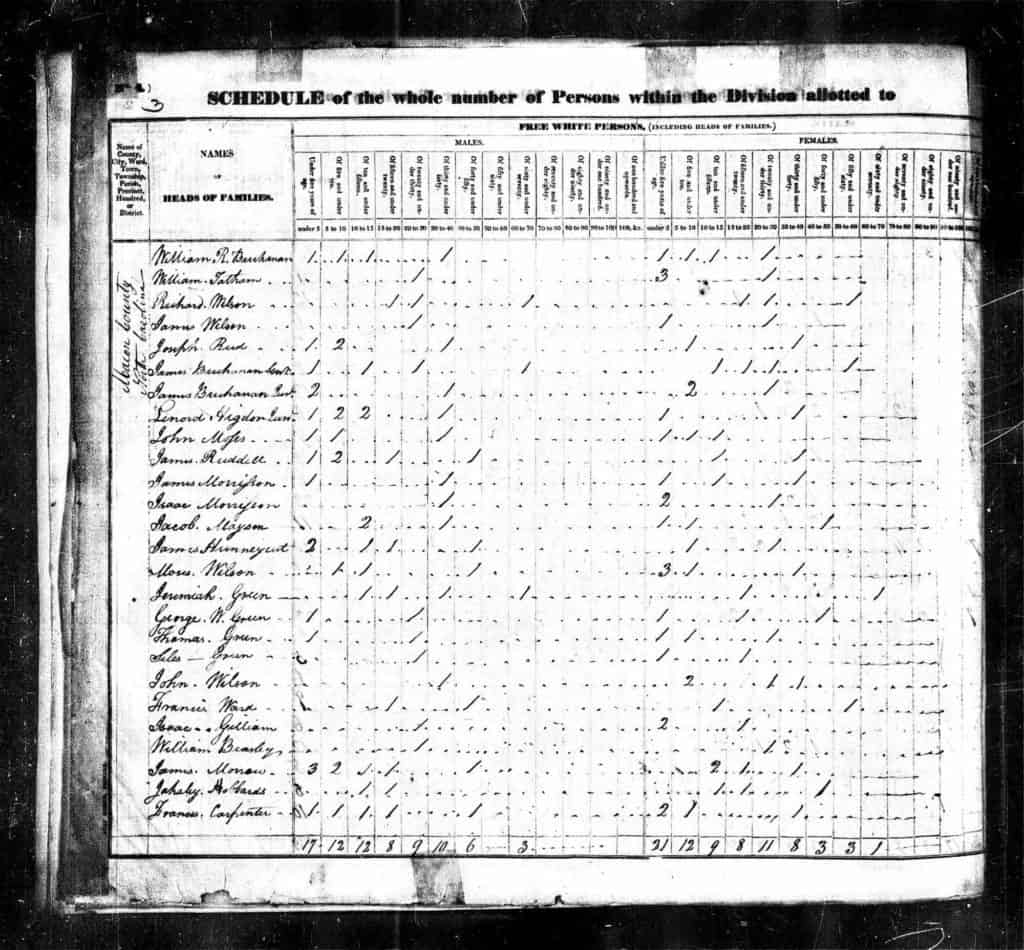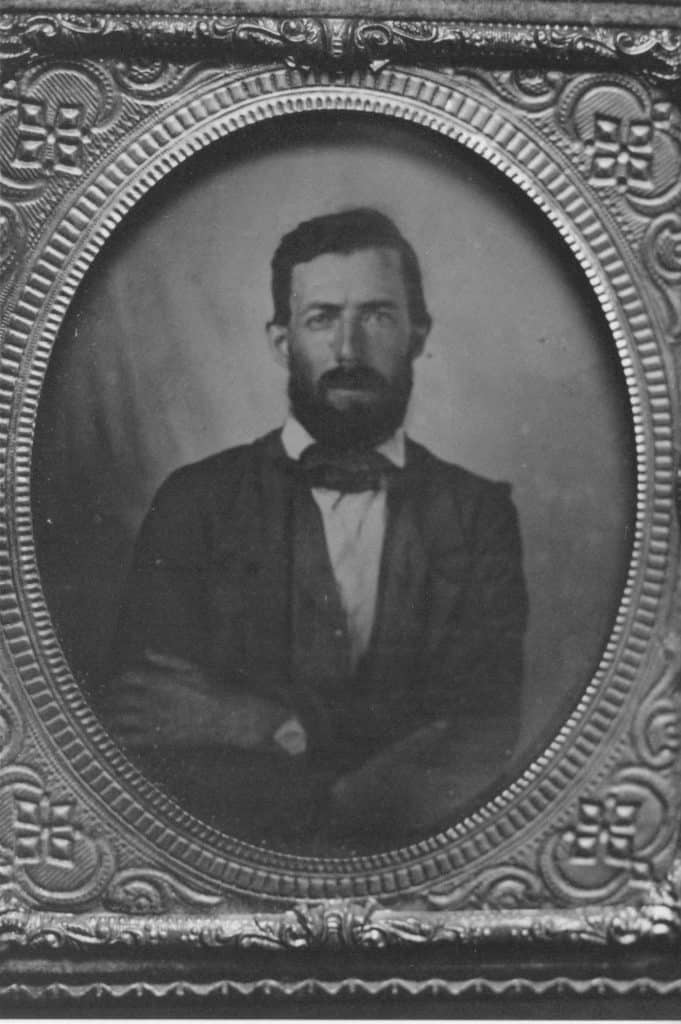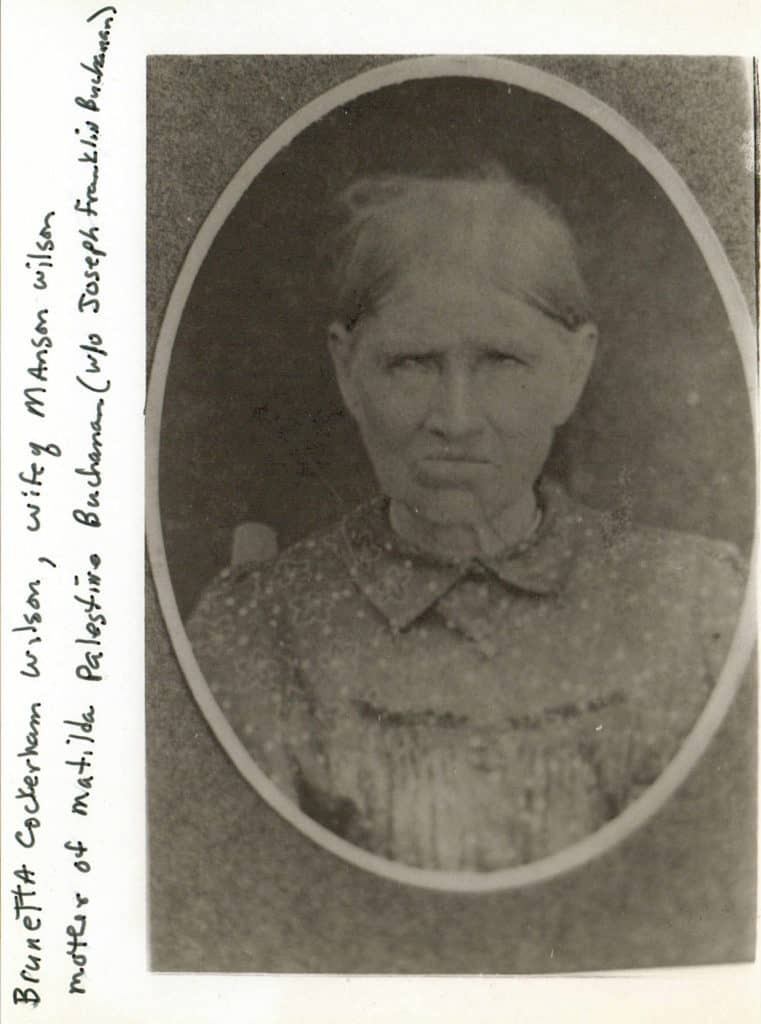The majority of my time as a Foxfire intern is dedicated to researching the history behind many of the log buildings here at the museum. Using resources like Foxfire’s own archives and online databases, I’ve been able to piece together incredible stories that contribute to the museum’s interpretation of the Appalachian village. Over the course of my research, I was struck most by the historical significance of the Savannah House. Built around 1820, it is the oldest building at the Foxfire Museum & Heritage Center and a genuine Appalachian frontier cabin.
I started my research in Foxfire’s archives at the Carnesville House, digging through interview recordings and transcripts. When Foxfire bought the Savannah House, students talked to Frank Higdon, a descendant of the original owner Richard Wilson. From his interview, I constructed a basic timeline for the house and a family tree of who had lived in it.
Using information that Frank Higdon provided, I then turned to Ancestry.com to do some digging in the digital archives. Ancestry has a wealth of material ranging from census records, to military registers, to wills and estate records, and even photographs. When I searched for Richard Wilson, I was able to find census records from 1790 to 1840. The later records included several of his sons as well. The 1830 census and 1840 census were especially interesting because according to these records, Richard Wilson owned four slaves: a young boy, a woman between 10 and 24, a man between 24 and 36, and an older woman.

1830 Census documenting Richard Wilson’s four slaves.
Slavery wasn’t as common in the mountains as it was in the rest of the South. In fact, out of all of Richard’s neighbors listed in the 1830 census, only two others owned slaves: Joseph and John Wilson, most likely Richard’s sons. They each owned one slave. In 1840, only one of Richard’s neighbors owned a slave. So, the fact that Richard owned four slaves was a major indicator of his status. While I didn’t uncover any more information about the slaves themselves, this research definitely expands Foxfire’s interpretation of slavery and the antebellum period in Appalachia.
The Savannah House’s history also provides an opportunity for visitors to engage with the effects that the Civil War had on this area. Richard’s grandson, Manson Wilson, served in North Carolina’s 62nd Regiment as a corporal until Union soldiers captured him at Cumberland Gap. I found several records listing Manson Wilson as a prisoner of war, providing strong evidence of his experience as a Confederate soldier.

Manson Wilson, grandson of Richard Wilson and a corporal in the Confederate Army.
Frank Higdon’s interview provided another perspective of the war: that of Zephra Brunetti Wilson, Manson’s wife. According to Frank, she had several encounters with Union soldiers traveling through the area. On one occasion, they killed three of her hogs. Another time, they tried to steal a horse from her but she stubbornly stood her ground. The soldiers gave up after realizing that if they were going to take the horse, they would have to take Zephra Wilson with them.

Zephra Brunetti Wilson, Manson Wilson’s wife and occupant of the Savannah House during the Civil War
The work that I’ve done as an intern is proof that I can take the skills I developed as a graduate student and apply them in a professional setting. Not only have I loved my time here, but I also have the privilege of knowing that my research contributes to an ongoing mission to preserve the culture and history of Appalachia. Foxfire represents exactly why I chose to study history: to bring stories and voices out of the past and into the present, to be appreciated by all. I am more than proud to be here and I am eager to see how the museum evolves in the coming years.
~ Ellen Boggs
Ellen Boggs is entering her second year as a graduate student in public history at the Virginia Polytechnic Institute and State University (Virginia Tech) and is working as an intern with Foxfire this summer. She has worked as a research assistant at VT’s history department and served as an undergraduate editor for the Virginia Tech Undergraduate Historical Review. Ellen received her Bachelor of Arts in History with a minor in Appalachian Studies from VT in 2015.

Manson Wilson was a brother to my paternal great grandmother, Agnes Matilda Wilson, who married William Hamilton Bryson. Their daughter, Lou Etta married my grandfather, Coleman David Sutton. Lou Etta’s sister, Leah, married Coleman David’s brother, John Franklin Sutton.
My great-great grandmother Rotine Delphia (Cockerham) Cabe was a sister of Zephra Wilson, she married John Wesley Cabe who is buried in North Carolina. Rotine was buried in Darrington, WA. She had moved here along with the majority of her children. Most of the Cabe family men worked in the logging industry in WA state throughout the first half of the 20th century.